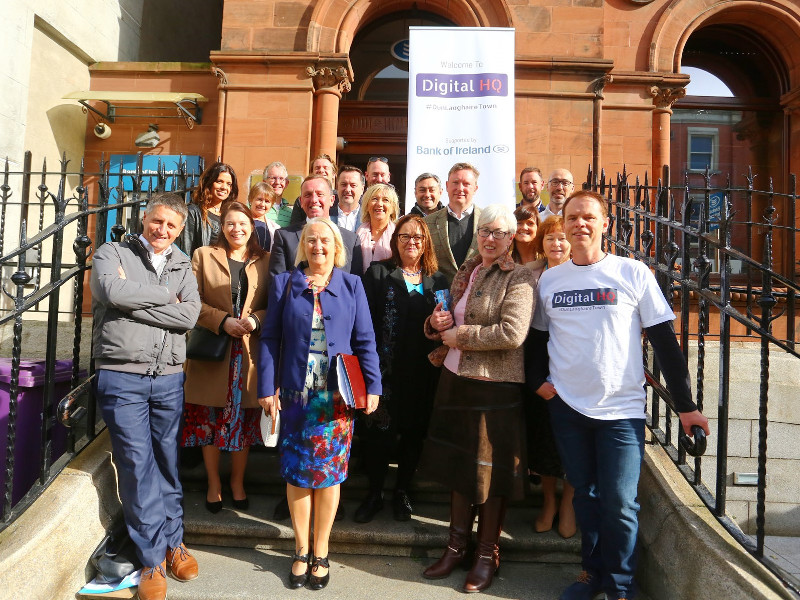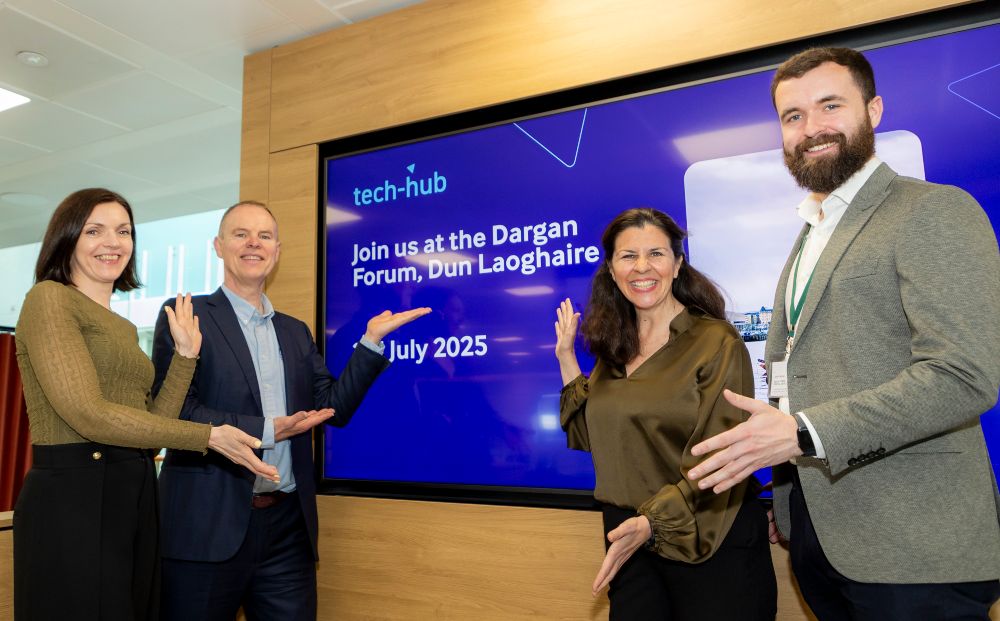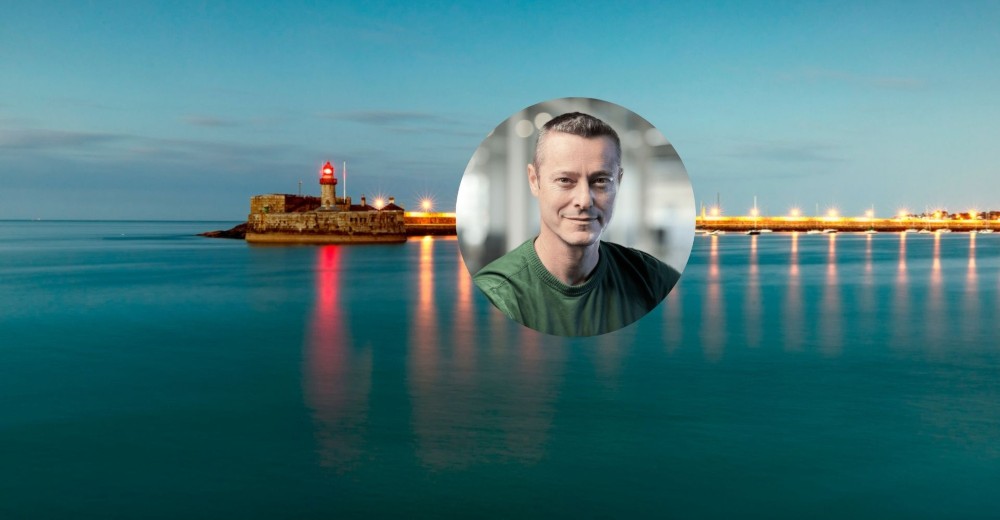Ahead of the Dargan Forum 2025, industry experts discuss the challenges and opportunities facing small and medium enterprises in Ireland.
Irish small and medium enterprises are facing a perfect storm of challenges – from soaring operational costs and talent shortages to global supply chain disruptions and geopolitical uncertainty.
Yet amid these pressures, a new narrative is emerging: one of resilience, adaptation, and unprecedented opportunity driven by artificial intelligence and digital transformation.
“The landscape facing Irish SMEs today is pretty complex. One of the biggest challenges they’re facing is the rising cost of doing business – everything from wage inflation, recruitment costs to energy bills which put pressure on margins”
This new narrative will be discussed at the upcoming Dargan Forum in Dun Laoghaire on 2 and 3 July. The Dargan Forum 2025 will bring together national and international experts to tackle Ireland’s most pressing challenges related to climate action, technological change, and economic uncertainty.
Featuring 55 expert speakers across 11 events, the Forum will address themes ranging from digital skills and artificial intelligence to retrofitting, sustainable transport, entrepreneurship, and the future of civic spaces.
Supporters of the Forum include Enterprise Nation, .ie, DLR County Council, Bank of Ireland, Connected Hubs, and RWE.
The new narrative: Cost and skills crunches
The landscape facing Irish SMEs today is “pretty complex,” according to Sean Buckley, director of Area East at Bank of Ireland.
“One of the biggest challenges they’re facing is the rising cost of doing business – everything from wage inflation, recruitment costs to energy bills which put pressure on margins,” Buckley explained. “Labour shortages are another issue, with some businesses struggling to find the right talent.”
Rising operational costs are hitting SMEs from multiple angles. Stephen Carolan, National Hubs Network Programme Manager at the Western Development Commission, identifies the scope of the challenge: “Rising operational costs, including energy, insurance, and input materials, continue to impact SME margins.”
These cost pressures are compounded by talent retention challenges. “Even when they do find staff, retaining people is tough, so there are more investments in flexible work arrangements, financial perks, and health supports to keep people on board,” Buckley explains.
For Joanne Mangan, Ireland country manager at Enterprise Nation, the financing gap represents a fundamental barrier: “Small businesses are under growing pressure from rising costs, economic uncertainty and limited access to finance and funding.”
The digital divide
While larger companies have resources to invest in digital transformation, smaller enterprises often lag behind. “Lack of access to digital technology and skills puts small businesses at risk of falling behind their larger counterparts,” Mangan notes. This digital gap could prove decisive as businesses compete in an increasingly technology-driven marketplace.
“Most small business owners have to take on multiple roles within the business – finance, marketing, admin, sales etc. and they often can’t afford to hire until they start turning a profit. This is where AI can be a real game-changer”
Carolan’s research confirms this trend: “Digital transformation lags, with many smaller firms still in early stages of integrating automation or data tools.” The challenge extends beyond technology adoption to include “regulatory complexity, from sustainability reporting to data compliance, adds administrative burdens.”
AI as the great equalizer
Despite these challenges, artificial intelligence emerges as a potential game-changer for Irish SMEs. “Digital transformation is a big one – many SMEs have already started adopting AI, and more are planning to follow suit,” Buckley observes.
For small business owners juggling multiple roles, AI offers transformative potential. “Most small business owners have to take on multiple roles within the business – finance, marketing, admin, sales etc. – and they often can’t afford to hire until they start turning a profit,” Mangan explains. “This is where AI can be a real game-changer. It gives small businesses access to the kind of support that would normally require a team of people.”
The applications extend far beyond basic automation. “At a recent Enterprise Nation Tech Hub event, we heard how small business owners are using AI in the most creative ways – as a business coach, a board member, a strategic adviser – even as a therapist!” Mangan reveals.
Buckley emphasises the collaborative potential: “The key is to focus on people, not just the tech. We need to help workers reskill and upskill in areas like AI literacy, data analysis, and digital tools. It’s also important to frame AI as a collaborator, not a replacement – especially in roles that rely on creativity, strategy, or human connection.”
Levelling the playing field
The agility that has long been SMEs’ competitive advantage could prove decisive in AI adoption.
“Small businesses have a great advantage in that they are often more agile than larger companies, so they can adopt these tools much more quickly,” Mangan points out. “In many ways, AI could level the playing field, allowing small companies to punch above their weight.”
However, this potential comes with caveats. “Without the right supports in place it could also widen the gap further,” Mangan warns.
“That’s why Enterprise Nation recently launched our Tech Hub platform, in partnership with Amazon, Google, Vodafone, Square, .ie and GS1 – to help small businesses get easy access to the information they need to adopt digital technology.”
The future of work: Hybrid and flexible
The pandemic fundamentally altered workplace expectations, and the changes appear permanent. “Hybrid work isn’t going anywhere, but it is evolving,” Buckley says. “Employees still value flexibility – it’s a big factor in work-life balance and staff retention.”
This shift creates opportunities for SMEs to access talent beyond their immediate geographic area. “Remote and hybrid working allow SMEs to access talent across regions, especially via platforms like ConnectedHubs.ie,” Carolan notes.
The infrastructure supporting this transformation continues to evolve. “Regional digital hubs offer SMEs affordable, scalable infrastructure for innovation, networking, and collaboration, reducing reliance on expensive urban real estate,” Carolan explains.
“Connected Hubs usage data shows steady demand for desk space, meeting rooms, and networking, indicating remote work isn’t fading but evolving into more strategic patterns.”
Sustainability: Challenge and opportunity
Environmental considerations are reshaping business strategies, presenting both challenges and opportunities. “Small businesses are already at the forefront of the green transition,” Mangan observes, citing examples like Less Watches, which creates watches with straps from discarded wetsuits, and Shareclub, whose reusable cup rental service can reduce event waste by 90%.
The collaborative potential extends to infrastructure and community engagement. “Local green initiatives are a great starting point – think tree planting, community gardens, or energy cooperatives where businesses and residents work together,” Buckley suggests. “SMEs can also make a big impact by sourcing locally and sustainably, which not only cuts emissions but supports the local economy.”
Carolan sees particular potential in shared approaches: “Businesses can co-invest in shared energy solutions (like solar panels on hub roofs) and waste management facilities with community organisations.”
Policy imperatives
Supporting SME transformation requires coordinated policy action across multiple areas. Housing emerges as a critical foundation. “Affordable housing is top of the list – it’s essential for attracting and keeping talent, whether in cities or rural areas,” Buckley emphasizes.
Infrastructure investments remain crucial. “We need serious investment in things like renewable energy, public transport, and sustainable construction,” Buckley argues, while Carolan highlights ongoing challenges: “Broadband and transport links remain uneven, though improving, across regions, limiting the ability of communities to benefit from decentralised growth.”
The digital transformation of main streets requires particular attention. “One of the biggest challenges for policymakers right now is how to support digital adoption without negatively impacting the vibrancy of our towns and communities,” Mangan warns. “It’s all about finding the right balance and using technology as a tool to support communities, not replace them.”
The road ahead
Despite current challenges, the outlook for Irish SMEs combines cautious optimism with strategic adaptation. “The most sustainable approach seems to be one that’s balanced and flexible – tailored to the needs of each role and individual,” Buckley concludes regarding workplace evolution.
The key to success lies in embracing change while maintaining human connections. “AI is a fundamental shift in how we live and work and like previous seismic shifts, such as the rise of the internet or the industrial revolution, it brings risks which need to be mitigated against,” Mangan reflects. “That’s how we can combine AI with human creativity and innovation, not replace it.”
For Irish SMEs, the path forward requires balancing technological adoption with community engagement, global competitiveness with local sustainability, and operational efficiency with human-centred values.
Those who successfully navigate these competing demands may find themselves not just surviving the current uncertainty, but thriving in the transformed economy that emerges.
-
Bank of Ireland is welcoming new customers every day – funding investments, working capital and expansions across multiple sectors. To learn more, click here
-
For support in challenging times, click here
-
Listen to the ThinkBusiness Podcast for business insights and inspiration. All episodes are here. You can also listen to the Podcast on:
-
Spotify
-
SoundCloud
-
Apple





